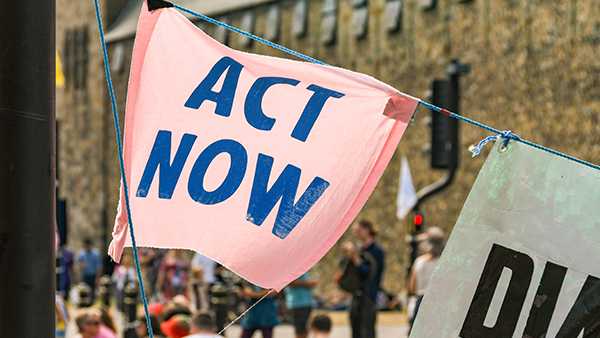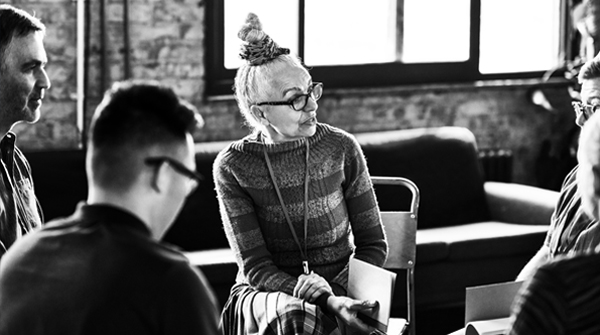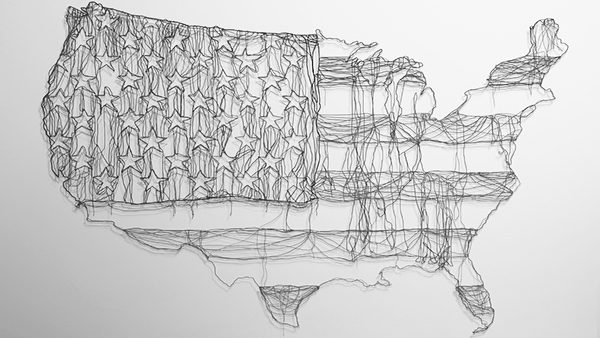In comparison to the nineties and early noughties politics in many developed world countries is seeing greater polarisation between right, left, pragmatists, radicals and populists. Yet, paradoxically, despite the array of political pitches on offer, there is little sign either of a realistic account of change or of the kind of politics the modern world needs.
One thing just about every politician has in common is the promise to bring about significant and specific social change. Moderate managerialists like Hilary Clinton and what is left of the centre ground in the UK offer control; vote for us and we will hold things together while getting our country back on track. The radicals, whether Trump, Sanders, Farage or Corbyn offer the possibility of a new dawn, somehow combining the best of what we remember from the past with idealised possibilities of the future. This divide pervades the current European referendum debate in which both sides pretend to know much more than they can about the consequences of either outcome.
In all this, realism and humility are largely absent. There is little or no recognition of the complexity of the modern world, the intractability of many problems and the unpredictable outcome of most attempts at reform. Those offering control and those offering radical change assume a knowable and malleable social reality. Such a reality is an illusion.
Recognising the world as it is doesn’t mean politicians should abandon progress or reform. Instead of the false prospectus of guaranteed outcomes, they should instead offer accounts of how their approach will best enable resilience. Rather than claiming “I can predict the future and change it” they should be saying “because we can’t predict the future we need the best strategy to prepare us for uncertainty”.
This means exploring the characteristics of resilient nations. Not only would such a focus encourage deeper, longer-term thinking, it can also reframe political debates. For the centre left, for example, this might mean shifting the emphasis of the case for equality and redistribution. Rather than focussing on the argument for justice per se, progressives could mobilise the evidence that more equal societies are more resilient. Thus reducing inequality isn’t about helping the poor at the expense of the middle and top but helping the nation as a whole prepare for the future.
Also, when it comes to the means of change, politicians need to talk in more realistic and experimental terms. Rather than promising outcomes or pre-committing to ideas that are unlikely to work out, politicians need to offer new ways to interpret and act: stop promising to deliver the public to a destination, instead invite citizens to participate in a journey of discovery. Such an account provides a way to bridge the idealistic politics of public mobilisation and the rusty mechanics of policy change to the benefit of both. Politics itself can either sap or enhance national resilience; our current discourse does the former.
We need a politics that acknowledges uncertainty, focuses not on one-off interventions but on building national capacity and sees change as emergent and dependent on public consent and engagement. It all sounds completely unrealistic. But there is change in the air. As well as the nostalgic radicals and populists there are more genuinely transformative movements. Here for example are the core values of Alternativet a fast growing Party in Denmark
Courage. Courage to look problems in the eye. But also courage about the future
Generosity. Everything which can be shared will be shared with anyone interested
Transparency. Everyone should be able to look over their shoulders
Humility. To the task. To those on whose shoulders we stand. And to those who join us
Humour. Without humour there can be no creativity. Without creativity there can be no good ideas. Without good ideas there can be no creative power. Without creative power that can be no results
Empathy. Putting yourself in other’s shoes
I found this list in a fascinating paper called ‘The 21st century political party: are you being served’ by Indra Adnan. While the incumbent class and the populist insurgents continue their unseemly fight on the arid terrain of 20th century politics, there are some beginning to stake out new ground for new times.
They are the true radicals.
Related articles
-
The public are ready to go further and faster on net zero
Anthony Painter
The public are ahead of policy-makers and, indeed, most of the business world. COP26 is an enormous opportunity to catch up. Global leaders should take it.
-
Can progressives ever stop the in-fighting?
Matthew Taylor
Biden's victory has caused the left and moderates to fracture again.
-
Can President Biden bring America together again?
Anthony Painter
There is a long road ahead for the new president.




Be the first to write a comment
Comments
Please login to post a comment or reply
Don't have an account? Click here to register.